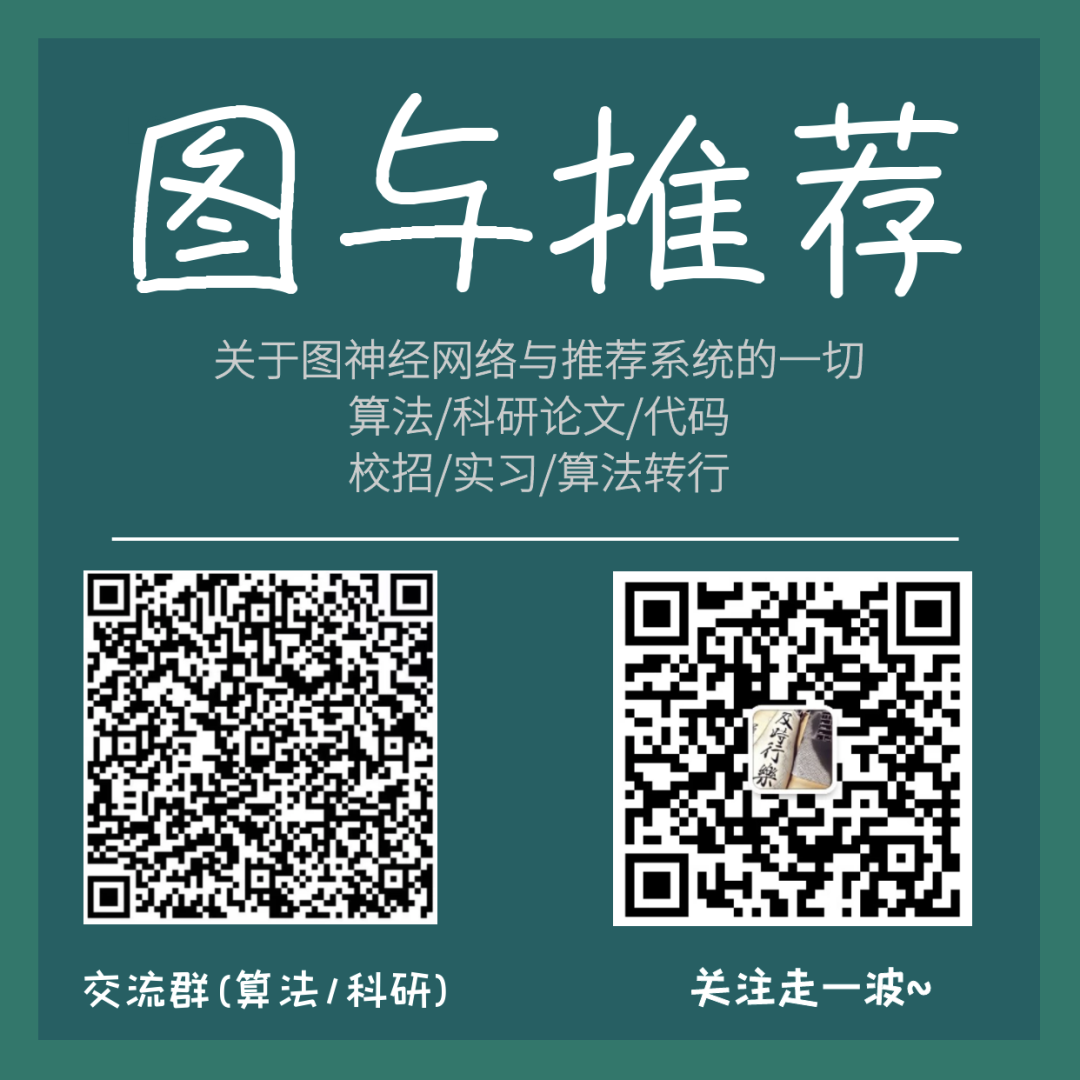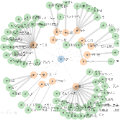SCI征稿 | IJCKG 2021,KG&GNN相关均可投递
IJCKG 2021: International Joint Conference on Knowledge Graphs
In cooperation with ACM/SIGAI
December 6–8, 2021, Online
https://www.ijckg.org/2021/
Final Call for Papers
Deadlines:
Abstract: Oct. 15,
Full Paper: Oct. 19
The 10th International Joint Conference on Knowledge Graphs (IJCKG 2021, in cooperation with ACM/SIGAI) is an academic forum on Knowledge Graphs. The mission of IJCKG 2021 is to bring together international researchers in the Knowledge Graph community and other related areas to present innovative research results or novel applications of Knowledge Graphs. IJCKG has evolved from the Joint International Semantic Technology Conference (JIST): a joint event for disseminating research results regarding the Semantic Web, Knowledge Graphs, Linked Data and AI on the Web.
Accepted papers will be published in the ACM Digital Library as part of its International Conference Proceedings Series (ICPS), and will appear in the ACM Digital Library. Extended versions of the best papers will be invited for Special Issues of the Knowledge-Based Systems and Data Intelligence Journals.
IJCKG solicits a variety of different types of submissions. Please see below for further details.
Research Track
The IJCKG 2021 Research Track solicits submissions of original research work relating to Knowledge Graphs. Topics of interest include, but are not limited to:
•Representation Learning for Knowledge Graphs•Semantic Web and Linked Data•Ontologies and Reasoning•Knowledge Graph Embeddings •Graph Neural Networks•Knowledge Graph Construction•Knowledge Graph Population and Information Extraction•Knowledge Graph Completion•Knowledge Graph Quality Assessment and Refinement•Knowledge Representation and Semantic Reasoning•Graph Processing Frameworks•Graph Algorithms and Analytics•Semantic Search, Question Answering, and Chatbots•Graph Databases and Query Languages•Multimodal Knowledge Graphs•Contextualized Knowledge Graphs•Cross-modal Semantic Understanding•Trust, Privacy, and Security for Knowledge Graphs•Blockchain Technologies and Knowledge Graphs•Open and Enterprise Knowledge Graphs•Knowledge Graphs for Explainable AI•Novel Applications of Knowledge Graphs
Submission types
One of the main goals of IJCKG is to be an innovative forum that brings together the research community working on diverse aspects of Knowledge Graphs. As well as full research papers (up to 8 pages ACM format, excluding references), we thus additionally solicit short papers (up to 4 pages ACM format, excluding references) relating to the aforementioned topics, of the following form:
•Resource papers describing artefacts that are relevant in the context of research on Knowledge Graphs, such as Open Knowledge Graphs, benchmarks, ontologies, machine learning models, systems, tools, etc. These resources must be published online under open licenses, and the paper must indicate how they can be retrieved and used. (See In-Use papers for resources that cannot be made available online.) Such papers will be judged based on the potential impact of the resource on the research and practice of Knowledge Graphs, taking into account aspects such as availability, documentation, etc.• Demo papers that illustrate the functionalities of novel Knowledge Graph-based systems and applications. Ideally such papers incorporate state-of-the-art research techniques, illustrating their use in a practical setting. Such papers will be judged based on the maturity, novelty and potential impact of the system described on the research and practice of Knowledge Graphs.•Experimental and analysis papers that provide statistics or results that help to better understand (and potentially compare) key aspects of prominent Knowledge Graphs, as well as systems and techniques used in the context of Knowledge Graphs (e.g., for querying, reasoning, learning, etc.). Papers that reproduce (or fail to reproduce) existing results or claims/hypotheses are welcome here. Such papers do not require technical novelty, but rather will be judged based on the appropriateness of the experiments and analyses, as well as the importance and clarity of the conclusions gained. Ideally resources will be published online to replicate the experiments or analyses, and/or to provide more fine-grained data supporting the experiments or analyses.•In-Use papers that describe how Knowledge Graphs are being used in practice. Use-cases involving Enterprise Knowledge Graphs are welcome. Such papers should include some lessons learnt through the real-world adoption of Knowledge Graphs, and ideally should stimulate future research. These papers may provide a description of the Knowledge Graph itself, the applications that use the Knowledge Graph, the key techniques enabling those applications, statistics regarding the adoption and impact, etc. Such papers will be judged based on the impact of the work described, and the clarity and importance of the lessons learnt through the adoption described. In the case of Enterprise Knowledge Graphs and other commercial use-cases, it is not expected that resources are made available online.•Vision papers that clearly articulate important directions for future research on Knowledge Graphs. Such papers should identify key problem areas for Knowledge Graphs, and propose potential solutions or strategies that could be developed to address such problems. Ideally the papers should highlight open research questions for Knowledge Graphs, and should stimulate future research. These papers will be judged on how convincingly the vision is articulated, which ideally will include first-hand experiences or concrete examples and analyses to illustrate the problem, as well as the clarity with which the open challenges and research problems are described.•Preliminary research papers that describe ongoing work towards solving a research problem relating to Knowledge Graphs. Such papers must contain the typical elements of a research paper, including discussion of related works, the novelty of the current work (preferably with a hypothesis), and a description of how the work will be evaluated, but detailed results and conclusions are not expected. The paper may optionally include some preliminary evaluation results and conclusions, if available. Such papers will be judged in terms of novelty, potential impact, clarity, etc.•Negative results papers that summarise novel lines of research that have thus far yielded negative results (negative results for existing research can be submitted as an experimental/analysis paper). Such papers must contain the typical elements of a research paper, including discussion of related works, the novelty of the current work (preferably with a hypothesis), and an evaluation that yields negative results, i.e., results that do not appear to support the original hypothesis. In its conclusions, the paper should reflect why the results observed are negative in order to summarise the lessons learnt. Such papers will be judged in terms of clarity, novelty, and impact. Papers whose negative results contradict expectations are particularly welcome.•Research proposals that may include, for example, topics for Masters and PhD theses pursued by the author, or proposed by a supervisor who seeks a student or other collaborators interested in the topic. Such papers should provide a general context that identifies the research problem, related works and the gap that they leave, a hypothesis or concrete research questions, and some proposed research lines in order to test the hypothesis or address the research questions, including strategies for evaluation.•Short research papers that summarise research results (i.e., concise versions of full research papers).
All such papers should be clearly written, technically sound, and include discussion of related works. Authors should clearly indicate in the abstract and the introduction what type of paper they are submitting, for example, adding a phrase "In this vision paper, we ...".
Important Dates
•Abstract submission: 23:59 (Hawaii Time), extended: October 15, 2021•Full paper submission: 23:59 (Hawaii Time), extended: October 19, 2021•Acceptance Notifications: November 12, 2021•Camera Ready Submissions: 23:59 (Hawaii Time), November 21, 2021•Conference Date: December 6–8, 2021
Submission
Submissions to IJCKG 2021 should describe original work on Knowledge Graphs. IJCKG 2021 will not accept submissions that are under review for or have already been published or accepted for publication in a journal or another conference (*).
* Non peer-reviewed documents such as theses, technical reports, publications on preprint servers (e.g. arXiv.org) or workshops papers without formal proceedings are not considered prior publications. In such cases, IJCKG 2021 authors are not precluded from submitting papers on the same topic by the same authors.
Full research papers submitted to IJCKG 2021 are expected to present their claimed research contribution, with clear evidence to support their claims. Short papers are expected to satisfy the criteria for the particular submission type (as described previously).
All submissions will be reviewed by at least three members of the Program Committee of the Research Track. These anonymous reviewers will judge each paper’s relevance to the conference, technical soundness, and the readability of the submission; papers will also be judged according to the criteria specified for the submission type.
IJCKG 2021 submissions are not anonymous.
Submissions must be in PDF format, using the latest ACM Proceedings Format with the default 9pt font (see sample-sigconf.tex or Interim layout.docx from https://www.acm.org/publications/proceedings-template). Regular paper submissions must be no longer than 8 pages, excluding references. Short paper submissions must be no longer than 4 pages, excluding references. Unlimited additional pages may be used for references. Submissions that exceed this limit or that do not follow the indicated format may be rejected without review. At least one author of each accepted paper must register for the conference and present the paper there. Papers for which authors do not register and present may be excluded from the proceedings.
Papers can be submitted electronically via EasyChair (https://easychair.org/conferences/?conf=ijckg2021).
Accepted papers will be published in the ACM Digital Library within its International Conference Proceedings Series (ICPS).
Journal Special Issue
A number of the best papers accepted to IJCKG 2021 will be recommended to a Special Issue of Knowledge-Based Systems on “Knowledge-Graph-Enabled Artificial Intelligence” and a Special Issue of the Data Intelligence Journal (DI, https://direct.mit.edu/dint), depending on reviewer assessments and topic.
Keynote Speakers
•Ian Horrocks, University of Oxford, UK•Li Juanzi, Tsinghua University, China•Juan Reutter, Pontificia Universidad Católica de Chile, Chile•Xu Yu, TigerGraph, China
PC Chairs
•Aidan Hogan, DCC, University of Chile, Santiago, Chile•Thanaruk Theeramunkong, SIIT, Thailand•Haofen Wang, Tongji University, Shanghai, China
General Chairs
•Oscar Corcho, UPM, Spain•Thepchai Supnithi, NECTEC, NSTDA, Thailand•Xiaoyan Zhu, Tsinghua University, China




